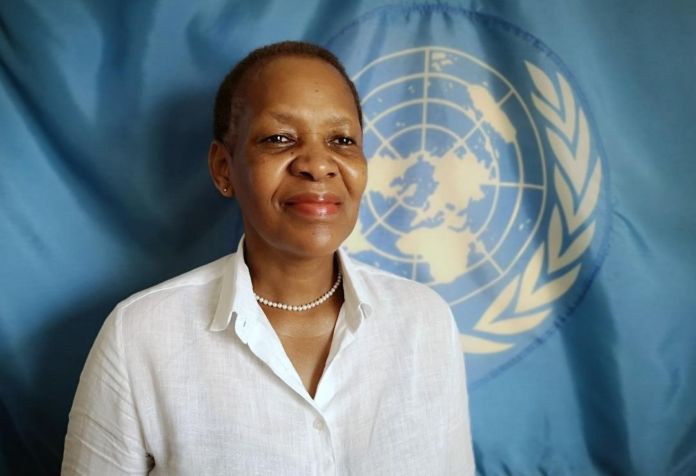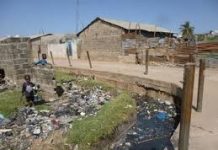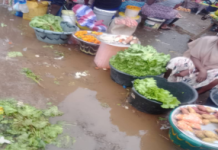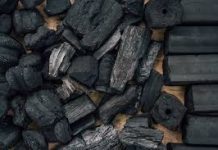With Madiba Singhateh
Welcome to another Edition of the Environment Column. In this week’s Column, we will continue with the rest of the interview that this Columnist earlier had with the country Representative of F.A.O. Moshibudi Rampedi, on matters relating to the fishery sector and sustainable fisheries such as aquaculture or fish farming within the country.
This is the continuation of the rest of the interview from Foroyaa’s Issue No. 034, 2020.
Q. What is FAO’s stance on catching fish in the Gambia to feed farms such as fish farms in foreign countries? Is this practice sustainable?
Interaction of aquaculture activities with other economic sectors and natural resource users, requires a responsible and integrated approach to aquaculture development as expressed in Article 9 of the Code of Conduct for Responsible Fisheries.
In response to the explicit request of Member countries to improve the management and enhance the socio-economic impacts of aquaculture in 2006, FAO initiated the development of an Ecosystem Approach to Aquaculture (EAA). Guidelines for EAA became available in 2010 to improve this management and enhance the socio-economic impact of aquaculture.
With people consuming more fish than ever, the Code of Conduct for Responsible Fisheries (CCRF) is increasingly relevant as the guiding framework for implementing the principles of sustainable development of fisheries and aquaculture. New initiatives employed to advance the implementation of CCRF include efforts to move towards SDG compliant investments, integrated networks for reducing IUU fishing and the management of the risks of food production from aquaculture.
Q. FAO is promoting artisanal fishermen in fish processing and fish handling. Do you think industrial fishing is not taking away the jobs of local fishermen and fish mongers?
Recognizing small-scale fisheries as a fundamental contributor to poverty alleviation and food security, FAO supports the development of the sector, through development of a dedicated instrument, the Voluntary Guidelines for Small Scale Fisheries (SFF) in the Context of Food Security and Poverty Eradication. The SSF Guidelines are for all actors striving to secure sustainable small-scale fisheries, to end hunger and poverty and strengthen human rights. They are tools that guide dialogue, policy processes and action at all levels, from local communities to the global level.
The Department of Fisheries may assist in responding to your interest in whether industrial fishing is not taking away the jobs of local fishermen and fish mongers.
Q. Irregular and Unreported Unregulated (IUU) fishing are global problems, how is FAO working with governments to combat the issue?
At FAO, it has been important for us to make sure that fishermen and women, fish traders, fish processors are trained in combatting Illegal Unreported Unregulated Fishing (IUUF). IUUF is a very serious matter for FAO, as it remains one of the greatest threats to marine ecosystems. In addition, it strongly undermines national and regional efforts to manage fisheries in a sustainable manner as well as the endeavours to conserve marine biodiversity.
We have the means to end illegal fishing, thanks to the Port State Measures Agreement (PSMA) and other international tools. PSMA curtails IUU fishing by improving port inspections of foreign fishing vessels conducting illegal fishing activities. It is the first binding international agreement that targets IUU fishing. Almost all fish caught by foreign vessels come through a port on their way to markets. It is implemented through port controls. When done correctly, it can be very efficient in combating illegal fishing activities. The agreement helps regulate the fishing boats coming through every port, enhances regional and international cooperation and blocks the flow of IUU-caught fish into national and international markets.
Q. Currently, the Ministry of Fisheries in Partnership with FAO and EAF-Nansen Program is conducting acoustic survey in the waters to determine the stock level/Biomass of the pelagic resources.
FAO in partnership with the Norwegian Agency for Development Cooperation (NORAD) and the Institute of Marine Research (IMR) of Bergen, is working on the implementation of the EAF-Nansen Program. The Program’s long term objective is to ensure that ‘Sustainable fisheries improve food and nutrition security for people in partner countries’. For more than 40 years, the EAF-Nansen Program supported coastal developing countries to assess and manage their fisheries for sustainable use of their oceans.
The information and data collected through the Nansen Program, in particular through surveys with the research vessels is used to produce reports on the state of the fishery resources. Over the years the goals and objectives of the program have evolved to better respond to emerging global challenges and the needs of recipient countries. If we focus on what has happened in 2019 in our region, FAO confirms that the research vessels studied the continental shelf and upper slope of West Africa from South Africa to Morocco. The data collected provides an overview of distribution and abundance of resources across the region. In addition to determining distribution and abundance of demersal species and communities, and collecting biological samples; sampling is carried out to determine oceanographic conditions, including physical, chemical and biological attributes. Furthermore, the survey records matter of concern towards oceans’ pollution such as the recording of micro plastics and the occurrence of marine debris in the waters.
Q. What is FAO doing to determine whether or not additional fishmeal plants can be opened?
The need for the establishment and opening of additional fishmeal plants will be based on the guidance that the Ministry of Fisheries, Water Resources and National Assembly Matters provides.
Q. How are you going to narrow down individual species using acoustic monitoring? Also if they are migratory species that go up and down the West African coast how are you going to account for species that may not currently be in the waters? What are the challenges in the Fisheries Sector and what do you think is the possible solution?
Employing acoustic species monitoring to track migratory species along the West African Coast is done through among other means the EAF-Nansen Program.
Regarding challenges, she said the Government of The Gambia places priority on the development of fisheries and aquaculture, by providing the enabling environment for the active involvement of players including the private sector, in its development. However, there are various constraints confronting the development of the sector including the need to address technical, financial, managerial and institutional capacity.
Possible solutions may include recognizing the important role of small-scale fisheries for human well-being and sustainable development because of their contribution to food and nutrition security and the opportunity they represent for poverty eradication.
Fishing communities ought to be involved in decision-making processes that influence their lives and future. Where poverty exists in small-scale fishing communities, it may be multidimensional in nature and not only caused by dwindling fishery resources and low incomes but also by factors that impede full enjoyment of human rights, including civil, political, economic, social and cultural rights. The often-complex livelihood strategies of fishing communities may address resource management from a broader social and economic development perspective.
To address this situation, the FAOs’ Voluntary Guidelines for Securing Sustainable Small-Scale Fisheries in the Context of Food Security and Poverty Eradication (SSF Guidelines) were developed by Member States. This guideline was endorsed by the 31st Session of the FAO Committee on Fisheries in 2014. The SSF Guidelines are unique; they represent the first international instrument dedicated entirely to small-scale fisheries; they present an opportunity for addressing fisheries challenges and opportunities in the Gambia.





















